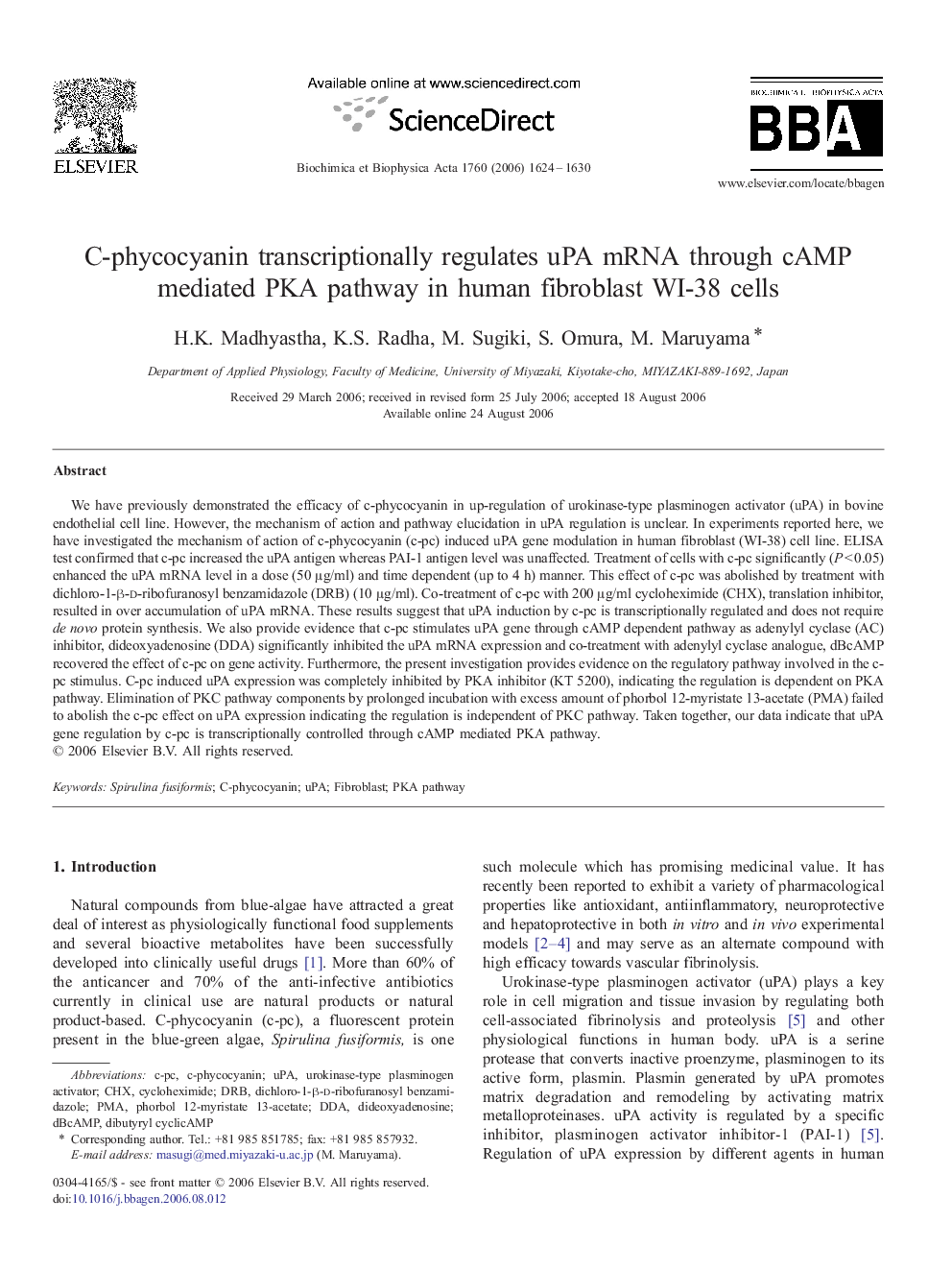| Article ID | Journal | Published Year | Pages | File Type |
|---|---|---|---|---|
| 1948701 | Biochimica et Biophysica Acta (BBA) - General Subjects | 2006 | 7 Pages |
We have previously demonstrated the efficacy of c-phycocyanin in up-regulation of urokinase-type plasminogen activator (uPA) in bovine endothelial cell line. However, the mechanism of action and pathway elucidation in uPA regulation is unclear. In experiments reported here, we have investigated the mechanism of action of c-phycocyanin (c-pc) induced uPA gene modulation in human fibroblast (WI-38) cell line. ELISA test confirmed that c-pc increased the uPA antigen whereas PAI-1 antigen level was unaffected. Treatment of cells with c-pc significantly (P < 0.05) enhanced the uPA mRNA level in a dose (50 μg/ml) and time dependent (up to 4 h) manner. This effect of c-pc was abolished by treatment with dichloro-1-β-d-ribofuranosyl benzamidazole (DRB) (10 μg/ml). Co-treatment of c-pc with 200 μg/ml cycloheximide (CHX), translation inhibitor, resulted in over accumulation of uPA mRNA. These results suggest that uPA induction by c-pc is transcriptionally regulated and does not require de novo protein synthesis. We also provide evidence that c-pc stimulates uPA gene through cAMP dependent pathway as adenylyl cyclase (AC) inhibitor, dideoxyadenosine (DDA) significantly inhibited the uPA mRNA expression and co-treatment with adenylyl cyclase analogue, dBcAMP recovered the effect of c-pc on gene activity. Furthermore, the present investigation provides evidence on the regulatory pathway involved in the c-pc stimulus. C-pc induced uPA expression was completely inhibited by PKA inhibitor (KT 5200), indicating the regulation is dependent on PKA pathway. Elimination of PKC pathway components by prolonged incubation with excess amount of phorbol 12-myristate 13-acetate (PMA) failed to abolish the c-pc effect on uPA expression indicating the regulation is independent of PKC pathway. Taken together, our data indicate that uPA gene regulation by c-pc is transcriptionally controlled through cAMP mediated PKA pathway.
